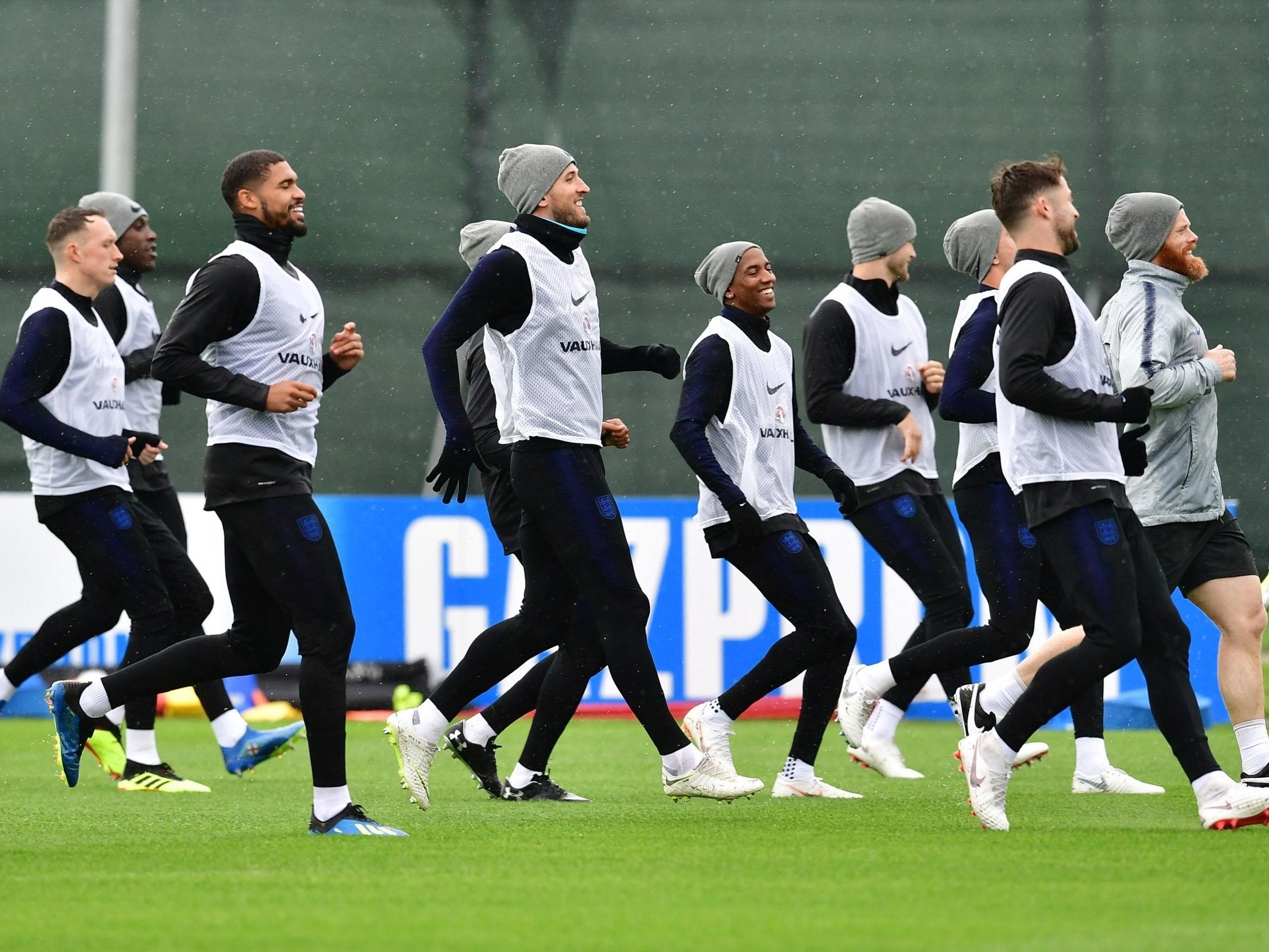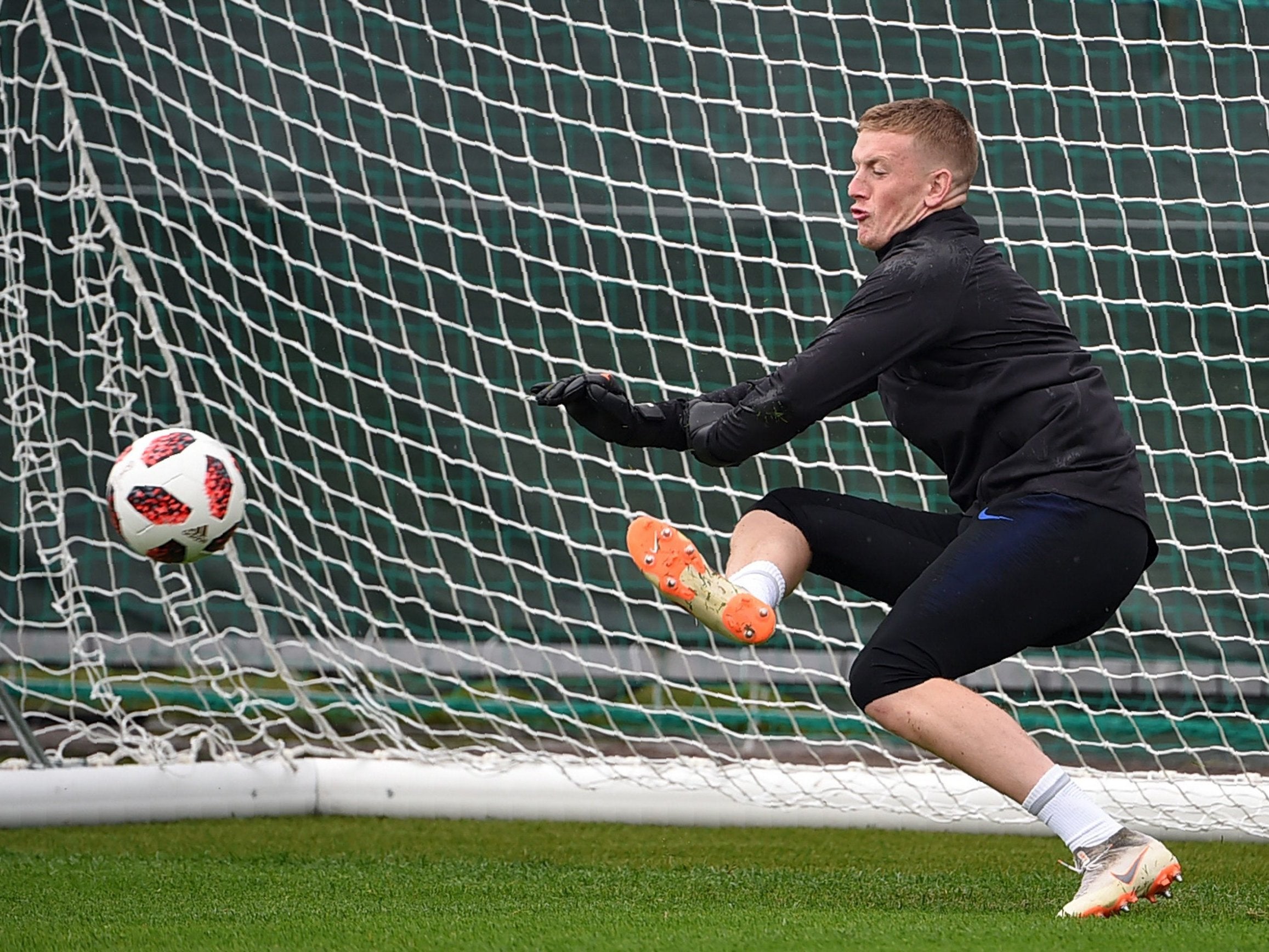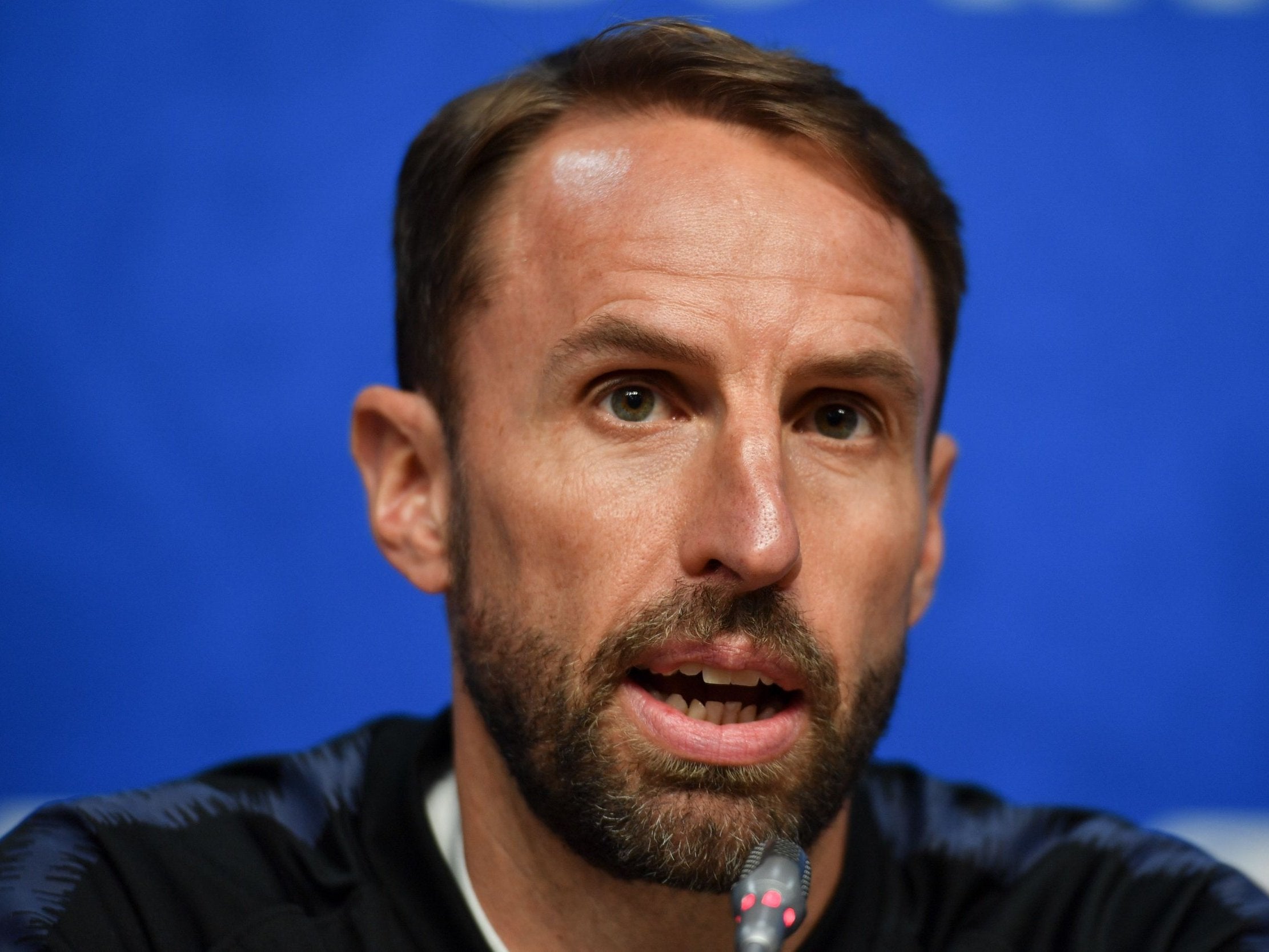Gareth Southgate: Heavy is the head that wears the crown for English football's unlikely saviour
Ahead of the quarter-final with Sweden, Southgate has achieved a national popularity no England manager has reached in a generation
English football is a fickle place but not many would have expected that it would eventually get round to anointing Gareth Southgate as its King Midas.
But here we are, on the eve of a World Cup quarter-final, with Southgate having achieved a national popularity no England manager has reached in a generation. For his decisions, which feel in this fortunate moment as if they are being vindicated again and again and again. But also for his conduct and values, which have resonated with the public in a way his predecessors never could. And however fervent things are now, imagine how Southgate will be received if England win on Saturday, or their next game after that, or their next game after that.
Except the man at the centre of the storm does not see it quite like that. Of course Southgate knows about the mood at home, and his unlikely new role as a unifying national figure in a divided country. But when asked in Repino on Thursday afternoon, he did everything he could to deflect, to wriggle free from that elevated status. Uneasy lies the head that wears a crown, even after masterminding a penalty shoot-out win.
“I always think it is dangerous for a start,” said Southgate. “Because I’ve got a lot of faults and I have done plenty of things wrong. It’s obviously a nice moment but it’s probably a good thing that we are away [from it].”
Given the self-importance of so many managers, especially at the top end of the club game, it is refreshing and almost surprising to hear a manager talk about himself in these terms. But Southgate, as strong as his convictions are, is very open in discussing his own flaws and his own failings. Even little details he has got wrong over the course of this World Cup: training sessions planned wrong, meetings that missed the point, conversations he never had. Those admissions mean so much in an environment where the men in charge are often so reluctant to admit fault.
“The list of things I’ve got wrong is the same as everybody else’s,” Southgate said. “At the moment everyone is choosing to reflect on everything that has gone well and that is very nice. But I know that is not the real world, and I’ve been around long enough to know that tide changes.”
So what could he have done differently or done better?
“We reflect on every training session and every conversation and every missed conversation. We don’t get everything right. We don’t get every training session [right], maybe the tone of every meeting or the passing on of specific information. But every coach and manager goes through that. There are moments where a strength is listening to players and explaining to them. But at times I have missed a couple of opportunities earlier in the tournament to speak to players.”

For Southgate that self-evaluation is happening “constantly, really, constantly”. Especially when it concerns the part of this job that is more human than technical. Southgate says that the England squad is “a family” that he has to look after. Both Harry Kane and Fabian Delph have used the word “brothers” this week to describe the England squad. And Southgate allows that pastoral role to take as much of his time as it needs. “You are always thinking about which players do I need to give more time to today, or which members of staff have I not connected with for a little while,” he said. “You want everybody on the same stage, and feeling connected to what we are doing.”

But as popular as Southgate now is, the reality of football is that all that admiration is precariously balanced on the successful progress of the England team. And but for a few contingent little details here or there, they would not be in the position they are now in, preparing for the easiest quarter-final opponent of the eight.
What if Kane did not score that winner against Tunisia, would they have ever generated momentum? What if Marcus Rashford had equalised against Belgium and England had won the group, would they have beaten Japan, what about Brazil in the quarters? What if Luis Muriel’s penalty had gone in, and Kieran Trippier had to score to keep England in the tournament?

This is why it can be so difficult to judge international managers, because there is still so much variance to outcomes beyond their control. It is almost like being a poker player, who can make good decisions based on their own hand but are ultimately at the mercy of whichever cards turn up. Southgate understands this. “In internationals the margins hinge on one or two games every two years,” he said. “It’s a really fine dividing line and in a low scoring sport with such random events that affect outcomes there’s a lot more that’s out of your control.”
Even on Tuesday, Southgate’s great triumph, he knows that the decision to put on Eric Dier for Dele Alli could easily have backfired had things turned out differently. “You try and make decisions for the right reasons and sometimes those decisions can be assessed in hindsight,” he said. “We make a change at the end of the game the other day. If we see the game out everybody says it was the right thing, to close the game up. If we don’t make the change and we let a goal in, people say why didn’t we close the game up? We make the change, the goal goes in, and it’s why did we do that?”
So even now, on the brink of history, Southgate knows that he cannot get carried away with the praise and cannot stop evaluating his own performance, and his own decisions, in the same way. Otherwise he will lose what has made him succeed so far. And ultimately it is by following his convictions that he has got here. Southgate is popular, but not because he sets out to be.
“We won the other night but I still had a couple of emails, saying 'really good, but you should be picking this one and that one'’, he joked. “So it’s impossible to please everybody all of the time but you've got to just believe that you're making decisions for the right reasons.”
Join our commenting forum
Join thought-provoking conversations, follow other Independent readers and see their replies
Comments
Bookmark popover
Removed from bookmarks